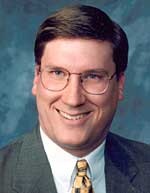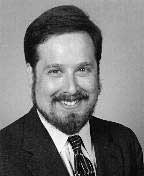By Michael Khoo
Minnesota Public Radio
January 11, 2002
A tripartisan stadium task force has given its informal endorsement to a state role in building new stadiums for the Minnesota Twins, the Vikings, and the University of Minnesota Gophers. During a meeting in Mankato, the panel opted to support the concept of public financing for a stadium while steering clear of direct subsidization. But sorting through the details is likely to remain a formidable task.
| |
|
|
|
||
Financing versus funding has been the hot topic among task force members for weeks now. Supporters of financing say the state need only back the bonds for stadium construction and gradually retire the debt through revenues produced directly or indirectly by the facilities.
Assistant Senate Majority Leader John Hottinger represents the Mankato area, home to the Vikings' annual training camp. He told the panel the public is ready to support the financing option.
"I think Minnesotans have shown a resistance to subsidizing. But I think they have an openness to financing. I just got done refinancing my house, and I can assure you Wells Fargo did not subsidize me. But they did provide me an opportunity," Hottinger said.
Through an informal show of hands, task force members backed a number of options for paying off state-issued bonds. They range from new taxes on licensed sports memorabilia to surcharges on the incomes of players and stadium employees.
Some members supported directing existing stadium taxes to new construction. But opponents of that approach argue such taxes currently support a wide range of state needs, including education, health care, and public safety. They say re-directing such taxes siphons resources from state coffers and therefore amounts to funding versus pure financing. Regardless, however, of how that debate is resolved, it's clear such "user fees" won't be sufficient to retire all of the bonds. That's particularly the case if new facilities are built for both the Twins and the Vikings - a cost that could easily top $800 million.
| |
|
|
|
||
Rep. Mary Liz Holberg, R-Lakeville, sits on the task force. She argued for leaving other choices open. "To date, I haven't seen enough user fees, surcharges to even cash flow a couple of these things. And the more options we lay out to the Legislature, the more likelihood there's going to be success in addressing this concern," she said.
Holberg and other members favor capturing some type of gambling revenues to bridge any funding gap. That could include a new state lottery game, slot machines at Canterbury Park Racetrack, or a privately-run casino.
Other options include so-called "tourist taxes" on hotels and rental cars or funding provided by a ballpark's host city.
St. Paul Mayor Randy Kelly, for example, has suggested a 3 percent restaurant and bar tax in his city to cover part of the costs of a riverfront stadium.
Representatives of the Twins were not on hand during the hearing. But Vikings consultant Lester Bagley says he's pleased with the task force's progress. "We've said all along that you can do this; you can build a football stadium in Minnesota and pay for it with private sector contribution combined with the public sector contribution that does not increase taxes on the average Minnesotan," Bagley said.
Bagley does acknowledge, however, that an entertainment or tourist tax would fall on some taxpayers who don't necessarily support a stadium. But the idea might still find support if it's approved by a local referendum.
Planning Director Dean Barkley, a Ventura appointee to the task force, says the governor could support a local tax increase if voters get behind it. Barkley says Ventura's main concern is that financing plans not interfere with the state's general budget, which is already facing a $2 billion projected shortfall.
"So long as it doesn't violate that number one proviso that this does not take money from the general fund, I think it's something he's willing to look at. So that gives a lot of room for ideas, including charitable gaming and other ones other than just user fees," according to Barkley.
Ventura has advocated allowing sports betting at the Mall of America. Barkley says he'll raise that issue when the task force meets again next week. Members will then try to isolate the revenue options they believe are best suited to supporting stadium construction.
More Information

